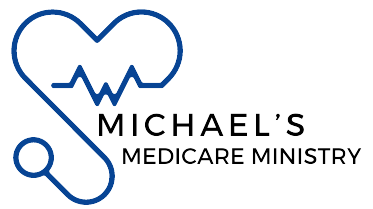Navigating health insurance options can be a daunting task, especially as you approach eligibility for Medicare or seek to optimize your current plan. Understanding how Medicare coverage services in Beaverton influence both your health care and financial planning is crucial for making informed decisions. This blog delves into how the various facets of Medicare coverage services in Beaverton affect your overall well-being and financial situation, helping you manage your health care effectively while staying within your budget.

Understanding Medicare Coverage
Medicare is a federal program designed to provide health insurance primarily for individuals aged 65 and older, though it also covers certain younger individuals with disabilities. The program is divided into several parts, each offering distinct types of coverage:
- Hospital Insurance (Part A): Covers inpatient hospital stays, skilled nursing facility care, hospice care, and some home health care. Generally, if you or your spouse have paid Medicare taxes during your working years, you do not have to pay a premium for this coverage.
- Medical Insurance (Part B): Includes coverage for outpatient services, doctor visits, preventive services, and some home health care. Part B typically requires a monthly premium, which can vary based on your income.
- Medicare Advantage Plans (Part C): These plans are an alternative to Original Medicare and combine coverage from Part A and Part B. Many plans also include additional benefits, such as vision, dental, and hearing coverage.
- Prescription Drug Coverage (Part D): Provides coverage for prescription medications, helping to manage the costs of drugs that are not covered by other parts of Medicare.
How Coverage Influences Health Care Choices
The way Medicare coverage is structured plays a significant role in your health care choices:
Access to Providers
One of the most significant aspects of Medicare coverage is the network of health care providers. With Medicare Advantage Plans, the network of available doctors, specialists, and hospitals is often more restricted compared to Original Medicare. It’s essential to ensure that your preferred health care providers are included in the network to avoid unexpected costs and ensure continuity of care.
For those using Original Medicare, there is more flexibility in choosing health care providers, as it generally offers a broader network. However, you may still need to check that specific services or specialists you need are covered under your plan.
Comprehensive Coverage Options
Medicare plans vary in terms of coverage. While Parts A and B provide foundational coverage, additional options like Medicare Advantage Plans and Part D can fill gaps. For example, Medicare Advantage Plans often include benefits for vision, dental, and hearing care, which are not covered by Original Medicare. If these services are important to you, exploring these additional options can ensure comprehensive care.

Financial Impact of Medicare Coverage
The financial implications of Medicare coverage are substantial and affect your overall budget:
Premiums and Out-of-Pocket Costs
Medicare coverage involves various costs, including monthly premiums, deductibles, and co-payments. For Part A, there is generally no premium if you meet the eligibility requirements, but you will still have deductibles and co-payments for hospital stays. Part B comes with a standard monthly premium, which can increase based on your income, and also involves deductibles and co-payments for medical services.
Medicare Advantage and Part D plans may have additional premiums and out-of-pocket costs. It’s crucial to review these costs carefully to understand how they will fit into your overall budget. Consider both the monthly premiums and potential additional expenses for services or medications when choosing a plan.
Coverage Gaps and Additional Insurance
Medicare does not cover all health care costs. There are gaps in coverage that might require you to pay out-of-pocket for certain services, such as most dental, vision, and hearing care. To mitigate these costs, you might need supplemental insurance or a Medigap policy, which can help cover expenses not included in Medicare.
Assessing the potential coverage gaps and exploring supplemental insurance options can provide added financial protection and help manage unexpected health care expenses.
Long-Term Financial Planning
Long-term financial planning is an essential aspect of managing health care costs. Medicare coverage has a significant impact on your financial strategy, especially as you age and your health care needs change. Planning for potential future expenses, including out-of-pocket costs and long-term care needs, is vital for maintaining financial stability.
Incorporate Medicare coverage considerations into your overall retirement planning to ensure that you are prepared for both anticipated and unexpected health care costs.

Making Informed Decisions
To make the best choices regarding your Medicare coverage, it is important to understand the various aspects of the program and how they align with your personal health care needs and financial situation. Take the time to review different coverage options, compare costs, and consider additional insurance if needed.
Evaluate how different Medicare plans meet your specific health care requirements and budget. By carefully assessing these factors, you can make informed decisions that enhance your health care experience and support your financial well-being.




